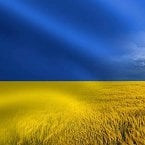Spring is usually a time of hope: trees blossom, bees buzz, gardens bloom. But in many parts of Ukraine this year, the season arrived late and brought unexpected and devastating conditions. Cold nights, unseasonal frosts, and heavy rains have created chaos for agriculture. Fields are soaked and unworkable, delaying the sowing of key crops like wheat, barley, and sunflowers. Some areas are still too wet for tractors to operate.
Perhaps even more alarming is how flowering plants and fruit trees are suffering. Gardeners are reporting that blossoms are sparse, late, and in some cases, nonexistent. Apple, cherry, and apricot trees, which usually burst with color and fragrance in April and May, have either bloomed poorly or failed to bloom at all.
This has serious consequences. Fewer flowers mean fewer fruits later in the year, and the pollination cycle is broken. Bees and other pollinators are arriving to find few flowers, disrupting their rhythms too.
Farmers across the country are sounding the alarm: if this pattern continues, we may see a catastrophic drop in yield. Grain output could fall by 20–30%, and fruit and vegetable supplies may shrink drastically. This not only affects domestic food prices, but Ukraine's crucial export economy as well.
Even people living in cities are noticing the change. Parks feel emptier, gardens lack color, and the usual buzz of spring has been replaced with anxious silence. Nature, it seems, is warning us—and this time, we must listen. Climate instability is no longer a future problem. It's here, now, and already affecting what ends up on our tables.
Quick Search

Prices & Services
Letters from 2$
Fast Gift Delivery
2-way Video Chat
5 Membership Levels
View all rates
